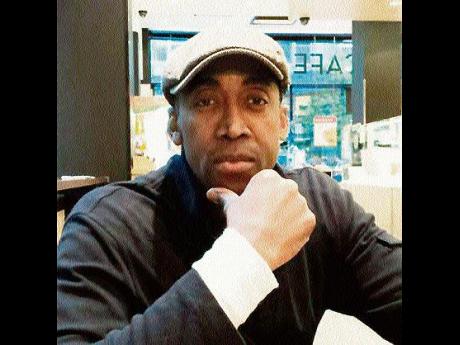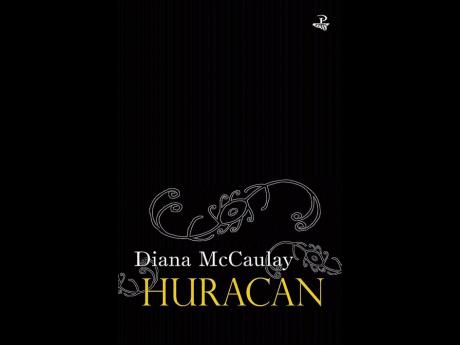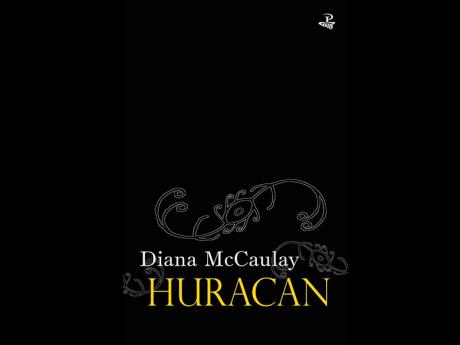Book Review - Huracan sears into a bitter past
- Title: Huracan
- Author: Diana McCaulay
- Publisher: Peepal Tree Press
Huracan, a Diana McCaulay novel is steeped in history, genealogy and culture. It deftly chronicles the progeny of a Scotsman with Jamaican roots while focusing on Leigh McCaulay, a young woman determined to quiet the noisy ghosts of a childhood bereft of attentive and loving parents and an ancestral past that is far from wanting.
It is a history that mirrors a society that is broken, yet, unrepentant. It is a past stained by race, colour, 'shadism', gender bias and the opulence of a few. Even the ravages of Mother Nature cannot be viewed literally. The fear and panic wrought by hurricanes are emblematic of the emotional turmoil experienced by the characters. It is a driving existential oeuvre that provokes a discourse on society and humanity.
Leigh seeks to mend relations with her father, while struggling to reconcile glaring social differences. There is a feeling that Jamaica's racial faultlines - inextricably bound to class - still threaten the society.
Indeed, there is an eerie commonality between the Great House hundreds of years ago, and the trappings of exclusivity that Leigh encounters as a teenager during the Manley years.
McCaulay's atmospheric tale traverses time, showcasing a Jamaica that is, at times, untamed and verdantly pristine, but stilted by the brutality of slavery. The reader travels through time to an era of unspeakable prejudice, and worse.
The indolence and shiftless nature of blacks are echoed by Massa and friends: "When you've have been here a while," newcomer minister, John Macaulay is told, "when you've seen how the Negro treats his children, how he treats other Negroes, when you have observed his work habits, then talk to me about men being free."
Interestingly, it's a message that is still voiced in some quarters, begging the question: "To what degree has society changed?"
For sure, Huracan convincingly portrays a brutal form of oppression that creates a magnetising archetype that possesses 16-year-old Zachary McCaulay, sent to the island in 1786 to mature and, hopefully, gain wealth and privilege.
He becomes a bookkeeper and, true to tradition, he displays contempt toward blacks. "Do ye want a flogging," he barks at one slave woman. Yet, he winces with temerity when a recalcitrant slave is whipped unremittingly. "Tears streaked his cheeks, but his eyes were open. Zachary's gorge rose and he swallowed hard. The only way to process this deed was to regard the woman on the ground as an animal".
Literary gem
Huracan scores on multiple fronts. First, as a literary gem, it is rich in substance and style, with a linguistic range that soars. McCaulay is a veritable storyteller. She is piercingly detailed, breathing soul into every line. In one of her many descriptive details of nature's interaction with Jamaica, McCaulay writes, "The sky was low and muddy. Here things did not stay in their proper places. Earth became sky and the sky came down to touch the hills and even the air was thick with water." She is equally comfortable with patois-laden exchanges of the underclass, "Massa, di mosquito dem not goin' low you to eat in peace. Mi put di table back?"
Huracan is also defined by its sharp sociological roots. It is a tale of the Caribbean experience unveiled, like no other.
Its characters are emotively definitive and reflect the complexity of their environment. Viewing history through the intimate thoughts and struggles of Leigh, Zachary, and John McCaulay reveals a truth that is seldom explored: The ill-gotten gains of slavery created a Massa no happier than the slaves he owned or controlled. Zachary's wretchedness is naked and his existence is almost vacuous. And his lust-hate passion is equally debilitating. His verbal and physical assaults against blacks fail to offer that sense of self assurance he craves. In an awkward, self-reprimanding way, he recoils after each outburst, even experiencing a nightmare of being whipped. "Why was I flogged?" he utters in consternation. Here, Huracan ventures into psychodynamics.
Characters
Equally interesting is John McCaulay, a 19th century minister who proves to be an anomaly, a misfit who attempts to salve broken souls. What irony! He, too, is grappling with unfulfilled desires and needs, while Leigh, against a 20th century backdrop, meanders through life, grasping for meaning.
Snapshots of other privileged characters reveal self-loathing, angst, trepidation, and near paranoia. "They better understand what's going to happen when they free the negers. Rape and murder, that's what," snaps an inebriated Mr Cassidy during a banquet at the Great Houses of Charles Monmouth.
Unquestionably, Huracan is a gift to the pioneer of existentialism, Viktor Frankl. McCaulay showcases slavery with all its unceasing pain - a pain that has spawned a scarred social psyche. And throughout, there is one reminder - a lesson - that life is forever riddled with encumbrances. And. unfortunately, no one is spared.
Send feedback to glenvilleashby.com or follow him on Twitter@glenvilleashby.





